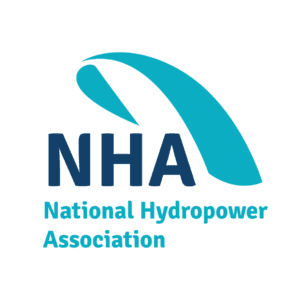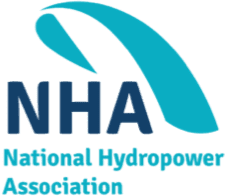
Bipartisan Legislation to Modernize and Improve Licensing of Hydropower Projects Receives Hearing in Senate Water and Power Subcommittee
U.S. Senators Daines and Cantwell’s Community and Hydropower Improvement Act included in today’s subcommittee hearing on pending legislation
Washington, D.C. (July 19, 2023) – The National Hydropower Association (NHA) and American Rivers applaud the United States Senate Committee on Energy and Natural Resources’ Water and Power Subcommittee for holding a hearing today on the bipartisan S. 1521 Community and Hydropower Improvement Act, jointly introduced in May of this year by U.S. Senators Steve Daines (MT) and Maria Cantwell (WA).
The Community and Hydropower Improvement Act proposes amendments to the Federal Power Act (FPA), which would streamline and modernize the hydropower licensing and re-licensing process. The Federal Power Act, originally enacted in 1920, authorizes the Federal Energy Regulatory Commission (FERC) to issue licenses to build, operate, and maintain hydropower facilities. The proposed updates would improve cooperation among FERC and resource agencies, coordinate federal decision-making, and add transparency to the hydropower licensing process.
Proposed changes include:
- Expediting the licensing process by directing FERC to establish a two-year process to grant licenses for hydropower additions to non-powered dams and a three-year process for lower-impact closed-loop and off-stream pumped storage projects
- Improving coordination between FERC, federally recognized tribes, and resource agencies in the hydropower licensing, relicensing and license surrender processes
- Shifts Federal Power Act (FPA) § 4(e) mandatory conditioning authority from the U.S. Department of the Interior to a Federally Recognized Tribe for any project located on land held in trust within the exterior boundaries of a Tribal reservation
- Clarifying the scope of environmental effects that may be considered in hydropower relicensing and ensuring that mandatory conditions submitted by certain federal agencies under sections 4(e) and 18 of the Federal Power Act address effects of the licensed project
- Improving the processes for surrendering licenses and removing non-operating dams
- Coordinating federal decision-making by directing FERC to convene a conference between agencies with conditioning authority and establish a joint schedule, allowing for the timely completion of all federal authorization decisions
“The Community and Hydropower Improvement Act is a landmark bipartisan bill that will protect and expand critical hydropower resources by streamlining and expediting the FERC licensing process and improving inter-agency coordination,” said Malcolm Woolf, CEO & President of the National Hydropower Association. “The current permitting process is bogged down with high costs and delays, leading to uncertainty and threatening 17 gigawatts of carbon-free, flexible energy currently on our grid. This strategic package proposes practical improvements to the hydropower permitting process, and with nearly half of the non-federal fleet coming up for relicensing, today’s hearing is a step in the right direction to protecting these vital hydropower resources and ensuring a clean energy future.”
“This is a package of smart, strategic updates to make the process work better for everyone,” said Tom Kiernan, President of American Rivers. “Healthy rivers are essential to all life. By improving the process for licensing, relicensing and decommissioning dams, and by restoring autonomy and self-determination to tribes, we will improve outcomes for rivers, the electric grid, and communities nationwide.”
Background
This legislation was informed by years of negotiations across a wide range of stakeholders convened under Stanford University’s Uncommon Dialogue on Hydropower, River Restoration and Public Safety, administered by the Woods Institute for the Environment and led by Dan W. Reicher. Members of the hydropower industry, environmental organizations, conservation groups, and Tribes came together to develop a legislative package to address and reform hydropower licensing.
In May, the White House expressed support for hydropower permitting reform, including it on the Administration’s priority sheet for clean energy. “We’ve got to fix the cost and delays that are bogging down the licensing process for hydropower projects. Hydro supplies 37 percent of zero-carbon power in the United States—and more than thirty percent of all the nonfederal hydropower licenses in the United States are set to expire by 2030,” said John Podesta, Senior Advisor to the President for Clean Energy Innovation and Implementation. “It’s time to reform the process so we can keep this crucial energy source online.”
The hearing will be webcast live on the committee’s website, and an archived video will be available shortly after the hearing concludes.
For more information, please contact Kelly Rogers with NHA at kelly@hydro.org or Amy Souers Kober with American Rivers at akober@americanrivers.org.
###


